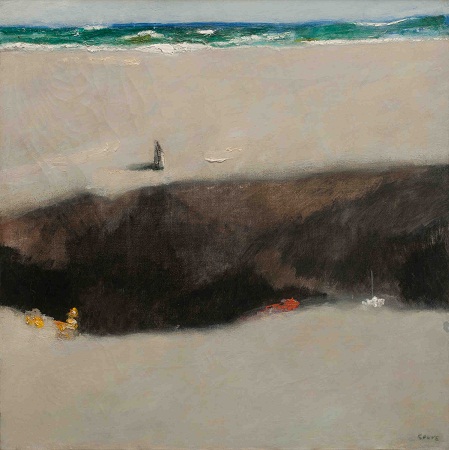By an observation, we found ourselves in the latitude of 30 degrees and 2 minutes south. Twelve of our crew were dead by immoderate labor and ill food; the rest were in a very weak condition.
From Gulliver's Travels by Jonathan Swift, 1900.
I want you to savor that fear. The South evolved in fear. Fear of the Indian. Fear of the slave. Fear of the damn Union. The South has a fine tradition of savoring fear.
From Cape Fear by Martin Scorcese, 1991.
She had gone off to join in the great battles that would end the worst of discrimination against black people in the South, and had become known for her bravery and her organisational skills. Threatened with the end of her visitor’s visa, she had married an American, ringing up Johnny to say it was only for form’s sake, he must understand it was her revolutionary duty. She would be back when the battle had been won. Meanwhile, rumours flowing from across the Atlantic said that this marriage for form’s sake was going along well, better than her sojourn with Johnny, which had been a bit of a disaster. She was much younger than Johnny, at first had been in awe of him, but had soon learned to see with her own eyes. She had had plenty of time for reflection, because she had found herself alone while he went to meetings and off on delegations to comradely countries.
From The Sweetest Dream by Doris Lessing, 2001.
Images fall slow and silent like snow.... Serenity... All defenses fall... everything is free to enter or to go out.... Fear is simply impossible.... A beautiful blue substance flows into me.... I see an archaic grinning face like South Pacific mask.... The face is blue purple splotched with gold....
From Naked Lunch by William Burroughs, 1959.
"Among other absurdities, I have considered studying the comparative influence of central heating on hemorrhoids in northern and southern countries. What do you think of it? The role of hygiene? Of diet? That kind of thing is fashionable nowadays. Such a study, properly handled and ingeniously dragged out, is sure to be favorably received by the Academy, since the majority of its members are old men to whom these problems of heating and hemorrhoids can hardly be indifferent. Look what they've done for cancer, which concerns them so closely... Don't you think the Academy might vote me one of its hygiene awards? Why not? Ten thousand francs? Not bad... Enough for a trip to Venice... Yes, my young friend, I was in Venice once as a young man... Oh yes! You can starve there just as well as anywhere else... But you breathe a sumptuous aroma of death that's not easy to forget..."
From Journey to the End of the Night by Louis-Ferdinand Céline (Trans. Ralph Manheim), 1934.
Seating myself across from her I drew my chair close and took hold of her hands. They were dry, small and quite hard. From all her tile-cutting she had developed sinewy arms, strong fingers. "Let's run off. Let's drive south and never come back, never see the simulacra again or Sam Barrows or Ontario, Oregon."
From Can We Build You by Philip K. Dick, 1972.
For it was this mixture in her of man and woman, one being uppermost and then the other, that often gave her conduct an unexpected turn. The curious of her own sex would argue, for example, if Orlando was a woman, how did she never take more than ten minutes to dress? And were not her clothes chosen rather at random, and sometimes worn rather shabby? And then they would say, still, she has none of the formality of a man, or a man's love of power. She is excessively tender-hearted. She could not endure to see a donkey beaten or a kitten drowned. Yet again, they noted, she detested household matters, was up at dawn and out among the fields in summer before the sun had risen. No farmer knew more about the crops than she did. She could drink with the best and liked games of hazard. She rode well and drove six horses at a gallop over London Bridge. Yet again, though bold and active as a man, it was remarked that the sight of another in danger brought on the most womanly palpitations. She would burst into tears on slight provocation. She was unversed in geography, found mathematics intolerable, and held some caprices which are more common among women than men, as for instance that to travel south is to travel downhill.
From Orlando by Virginia Woolf, 1928.
